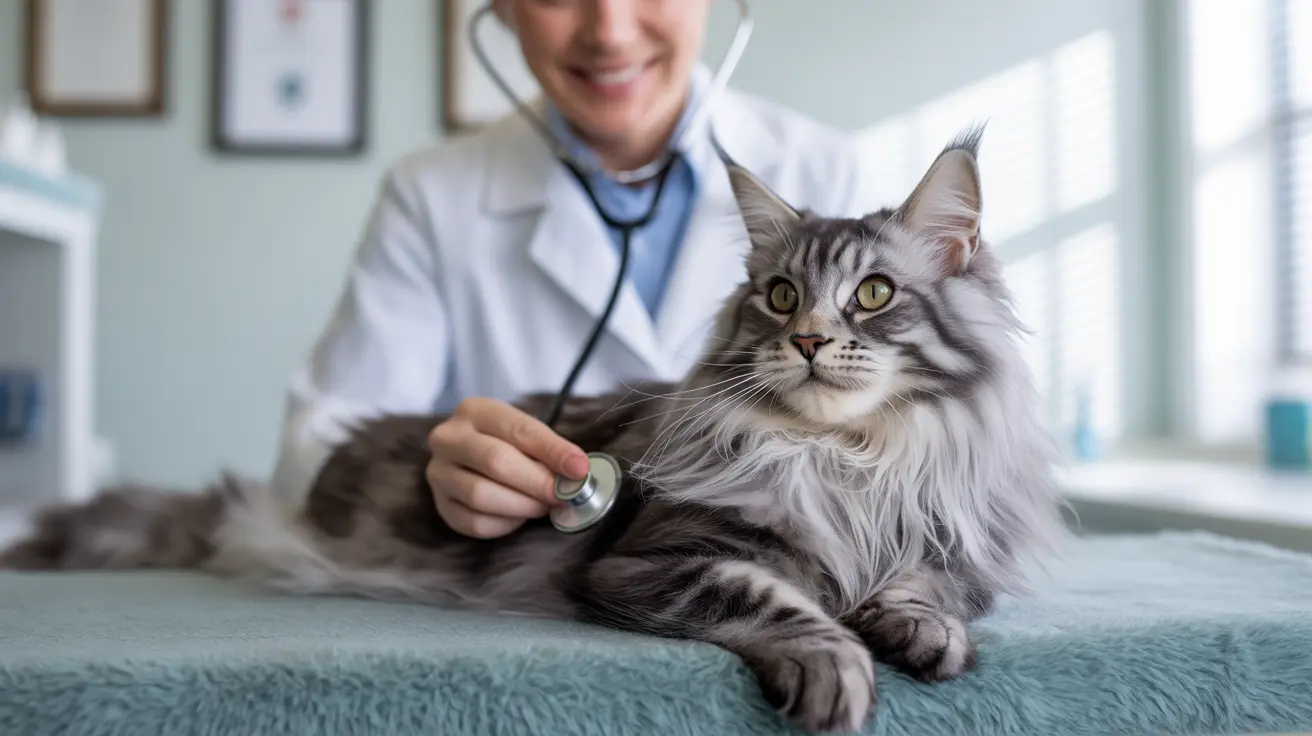The sudden loss of a beloved cat can be both devastating and confusing. When a cat dies suddenly without apparent warning signs, pet owners are often left searching for answers and wondering if they could have prevented the tragedy. This comprehensive guide will help you understand the most common causes of sudden death in cats and identify potential warning signs that might help save other feline lives.
Understanding Heart Disease in Cats
Heart disease, particularly hypertrophic cardiomyopathy (HCM), is one of the leading causes of sudden death in cats. This condition affects approximately 15% of all cats and is responsible for nearly 80% of heart-related sudden deaths. Maine Coon and Ragdoll cats are especially susceptible to this inherited condition, which can cause fatal blood clots or cardiac arrest with little to no warning.
Even cats that appear healthy can harbor serious heart conditions. Regular veterinary check-ups, including heart screenings, are crucial for early detection and management of these silent but potentially fatal conditions.
Hidden Dangers: Toxins and Environmental Hazards
Many household items pose severe risks to cats. Common toxins that can cause sudden death include:
- Lily plants (all parts are lethal)
- Antifreeze (even small amounts are fatal)
- Human medications (especially acetaminophen)
- Household cleaners
- Essential oils
- Certain human foods (chocolate, grapes, raisins)
Creating a cat-safe environment by removing these hazards can significantly reduce the risk of sudden death from poisoning.
Trauma and Accidents
Physical trauma remains a leading cause of sudden death, particularly in outdoor cats. Common sources include:
- Vehicle accidents
- Falls from heights
- Animal attacks
- Crushing injuries
- Internal injuries with no visible external signs
Keeping cats indoors or in secured outdoor spaces can dramatically reduce these risks.
Silent Killers: Internal Medical Conditions
Several internal conditions can lead to sudden death without obvious symptoms:
Urinary Blockages
Male cats are particularly susceptible to urethral obstruction, which can cause death within 24-72 hours if untreated. Watch for frequent trips to the litter box or straining to urinate.
Blood Clots
Feline aortic thromboembolism (FATE) can cause sudden paralysis and death. This condition often stems from underlying heart disease.
Respiratory Conditions
Severe asthma attacks, pneumonia, or airway obstructions can cause rapid death. Any breathing difficulty requires immediate veterinary attention.
Prevention and Monitoring
While not all sudden deaths are preventable, these steps can help reduce risks:
- Schedule regular veterinary check-ups (twice yearly for seniors)
- Monitor eating, drinking, and litter box habits
- Note any changes in behavior or activity level
- Keep cats indoors or in secure outdoor spaces
- Create a pet-safe home environment
- Maintain a healthy weight through proper diet and exercise
Frequently Asked Questions
What are the most common medical causes of sudden death in cats, and how can I recognize them?
The most common causes include heart disease (particularly HCM), blood clots, trauma, and toxin exposure. Watch for subtle signs like reduced activity, changes in appetite, breathing difficulties, or unusual vocalizations.
How does hypertrophic cardiomyopathy (HCM) cause sudden death in cats, and which breeds are most at risk?
HCM causes thickening of heart muscles, leading to sudden cardiac arrest or fatal blood clots. Maine Coon, Ragdoll, and Persian cats have higher genetic risk. Regular cardiac screenings are essential for these breeds.
Could toxins in the home or outdoor accidents lead to my cat dying suddenly without warning?
Yes, common household items like lilies, antifreeze, and certain medications can cause rapid death in cats. Outdoor accidents, including vehicle trauma and falls, are also leading causes of sudden death.
What signs should I watch for that might indicate a urinary blockage or blood clot causing sudden death in cats?
For urinary blockages, watch for frequent litter box visits, straining to urinate, or crying while urinating. Blood clots may cause sudden paralysis, particularly in the rear legs, accompanied by pain and distress.
Is it possible to prevent sudden death in cats through regular veterinary check-ups and lifestyle changes?
While not all sudden deaths are preventable, regular veterinary care, maintaining a safe indoor environment, proper nutrition, and monitoring for subtle changes in behavior can significantly reduce risks. Early intervention when problems are detected is crucial for survival.
Conclusion
Understanding the causes of sudden death in cats can help owners take preventive measures and potentially save lives. While the loss of a cat to sudden death is traumatic, channeling grief into education and prevention can help protect other feline companions. Remember that cats are masters at hiding illness, making regular veterinary care and vigilant observation essential for their well-being.






